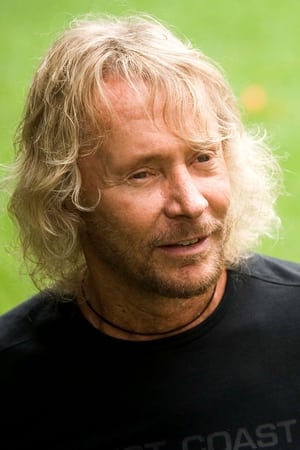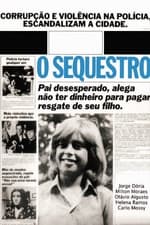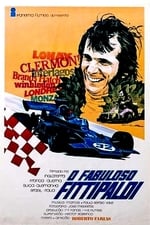Personal Info
Known For Sound
Known Credits 14
Gender Male
Birthday September 14, 1943 (80 years old)
Place of Birth Rio de Janeiro, Brazil
Also Known As
- -
Content Score
100
Yes! Looking good!
Login to report an issue
Biography
Marcos Kostenbader Valle (born 14 September 1943) is a Brazilian singer, songwriter, and record producer. He has produced works in many musical styles, including bossa nova, samba, and fusions of rock, soul, jazz, and dance music with Brazilian styles. Valle is credited for popularizing bossa nova in the 1960s.
Valle was born as Marcos Kostenbader Valle on 14 September 1943. He and his family lived in an apartment near Copacabana beach. Valle began playing piano at the age of five. His parents purchased him a Petrof piano when he was ten years old. Growing up, he became influenced by Marvin Gaye. In 1963, he and his family lived in a house, and Antônio Carlos Jobim had just moved across the street from them. Valle is married to singer Patricia Alví. He previously had a wife named Anamaria.
Valle's talent was evident from his high school years, which coincided with the explosion of the bossa nova movement in Rio. His classmates included future legends such as Edu Lobo and Dori Caymmi, and his composition "Sonho de Maria" was included on the Avanco album by the influential Tamba Trio in 1963. With his brother Paulo Sérgio Valle as his lyricist, he had already built an impressive portfolio of songs, prompting Odeon Records (a subsidiary of EMI) to sign him as a singer. His debut album Samba "Demais", was released in April 1964. His reputation quickly spread, and his fellow musicians (including Wilson Simonal, Elis Regina, and Nara Leão) lined up to record his songs. A second album, O Compositor e o Cantor, followed in 1965, and featured what would become his most recognisable song, "Samba De Verão" – known in English as "So Nice (Summer Samba)" – along with other hits such as "Deus Brasileiro," "Gente", and "A Resposta".
1966 brought Valle's first trip to the United States, where he and his then-wife Annamaria briefly teamed up with Sérgio Mendes in an early version of what would later become Brasil '66. The threat of being drafted and sent to Vietnam caused Valle to return quickly to Brazil, although the following year saw him back to the United States and enjoying some success, including the release of his U.S. debut album, Braziliance!, on Warner Bros. Records, and several appearances on The Andy Williams Show. Following session work on Verve Records releases by compatriots Walter Wanderley and Astrud Gilberto, the label released Valle's Samba '68 featuring English-language versions of songs from his earlier Brazilian releases.
Shortly thereafter, feeling homesick, Valle returned to Brazil and entered a new creative phase. Viola Enluarada (1968) was more mature and introspective, far removed from the frothy feel of Samba '68. The title track was a duet with Milton Nascimento and became one of Valle's signature compositions in Brazil. It also betrayed a political consciousness largely absent from Valle's previous work – he would become more overtly political in the years to come. The album as a whole pointed to a broader range of musical influences (particularly the Northeastern Brazilian styles he had enjoyed listening to since his childhood days) that moved him out of the "strictly 'bossa nova artists' club." ...
Source: Article "Marcos Valle" from Wikipedia in English, licensed under CC-BY-SA 3.0.
Marcos Kostenbader Valle (born 14 September 1943) is a Brazilian singer, songwriter, and record producer. He has produced works in many musical styles, including bossa nova, samba, and fusions of rock, soul, jazz, and dance music with Brazilian styles. Valle is credited for popularizing bossa nova in the 1960s.
Valle was born as Marcos Kostenbader Valle on 14 September 1943. He and his family lived in an apartment near Copacabana beach. Valle began playing piano at the age of five. His parents purchased him a Petrof piano when he was ten years old. Growing up, he became influenced by Marvin Gaye. In 1963, he and his family lived in a house, and Antônio Carlos Jobim had just moved across the street from them. Valle is married to singer Patricia Alví. He previously had a wife named Anamaria.
Valle's talent was evident from his high school years, which coincided with the explosion of the bossa nova movement in Rio. His classmates included future legends such as Edu Lobo and Dori Caymmi, and his composition "Sonho de Maria" was included on the Avanco album by the influential Tamba Trio in 1963. With his brother Paulo Sérgio Valle as his lyricist, he had already built an impressive portfolio of songs, prompting Odeon Records (a subsidiary of EMI) to sign him as a singer. His debut album Samba "Demais", was released in April 1964. His reputation quickly spread, and his fellow musicians (including Wilson Simonal, Elis Regina, and Nara Leão) lined up to record his songs. A second album, O Compositor e o Cantor, followed in 1965, and featured what would become his most recognisable song, "Samba De Verão" – known in English as "So Nice (Summer Samba)" – along with other hits such as "Deus Brasileiro," "Gente", and "A Resposta".
1966 brought Valle's first trip to the United States, where he and his then-wife Annamaria briefly teamed up with Sérgio Mendes in an early version of what would later become Brasil '66. The threat of being drafted and sent to Vietnam caused Valle to return quickly to Brazil, although the following year saw him back to the United States and enjoying some success, including the release of his U.S. debut album, Braziliance!, on Warner Bros. Records, and several appearances on The Andy Williams Show. Following session work on Verve Records releases by compatriots Walter Wanderley and Astrud Gilberto, the label released Valle's Samba '68 featuring English-language versions of songs from his earlier Brazilian releases.
Shortly thereafter, feeling homesick, Valle returned to Brazil and entered a new creative phase. Viola Enluarada (1968) was more mature and introspective, far removed from the frothy feel of Samba '68. The title track was a duet with Milton Nascimento and became one of Valle's signature compositions in Brazil. It also betrayed a political consciousness largely absent from Valle's previous work – he would become more overtly political in the years to come. The album as a whole pointed to a broader range of musical influences (particularly the Northeastern Brazilian styles he had enjoyed listening to since his childhood days) that moved him out of the "strictly 'bossa nova artists' club." ...
Source: Article "Marcos Valle" from Wikipedia in English, licensed under CC-BY-SA 3.0.
Known For
Sound
|
|||
|
Acting
|
||||||
|
||||||
|
||||||
|
||||||
|
||||||
|
||||||
|
||||||
|
||||||
|
||||||
|


